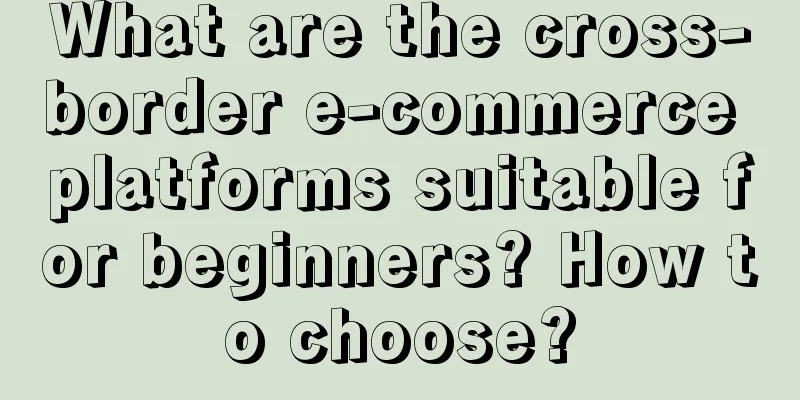How to create a consumer portrait? (2023 edition)

Portraits are a collection of tags that are used to segment users. Insights are to dig deep into the emotional potential gap based on portraits and find the connection points between brands/products and consumers. Next, we will systematically disassemble the consumer portrait, hoping to provide some inspiration and help everyone find its essence together. 1. What is Consumer Portrait?The original meaning of portrait is portrait, which is to draw the appearance of a person. Consumer portrait is for groups, which draws the appearance of a group of people. It is a collective portrait of common characteristics. Personal portraits are individuality, while consumer portraits are commonality. Since they are commonality, we should ignore the differences in specific personalities to a certain extent and look for the greatest common divisor of a large user group. Consumer portraits are about setting standards and solving the problem of "decision-making efficiency". In the actual operation process, we define consumer portrait as: in order to better manage customer relationships, target consumers are "collectively labeled" to improve decision-making efficiency. 2. The relationship between consumer portraits and consumer insightsWe mentioned in the article before that the definition of consumer insight is: starting from the product and brand, taking a certain social phenomenon as the origin, finding the emotional potential difference of the target group, and interpreting it in some form. Portraits are the basis of insight. Only when we are sure that we are thinking in the same frequency can we have a basis for judgment. Accuracy comes first, and then depth. Different groups have different needs, so the insights they produce will naturally vary greatly. Only with a target can you shoot arrows, otherwise it will be aimless. Only with the basic information of the portrait can you find the strategic direction for in-depth exploration. 3. Core Elements of Consumer PortraitsConsumer profiling requires weighing of information. It cannot be too simple so as to fail to find the focus of decision-making, nor can it be too complicated so as to interfere with one's thinking. Consumer profiling is to find the framing criteria and purchasing drivers of the target group. There are four main core elements of consumer portraits: demographic level, product functional value, user emotional value, and user values. Demographics is the most basic concrete label distinction, while product functional value and user emotional value are the driving forces of the value layer. Values are the principles of consumers' conduct. 1. Demographic LayerThe demographic layer is the most basic information label. It does not carry any conclusions, but some clues can be found from this incision. It is easy to identify and quantify, but it is difficult to draw direct conclusions. It mainly includes: gender, age, city, occupation, family structure, and income. Gender: Physiological and psychological differences, reflected in differences in product selling points. Age: reflected in differences in thinking patterns, spending power and demand for product categories. City: Related to consumption power and consumption culture. Occupation: related to consumption scenarios, thinking logic, and consumption capacity. Family structure: related to thinking logic and spending on specific categories. Income situation: Different incomes lead to different philosophies, which are reflected in the differences in demand for specific categories, as well as in the differences in demand for price segments within the same category. 2. Product Function ValueWhen a category develops towards maturity, it will be continuously subdivided into multiple sub-categories to meet the differentiated individual needs of consumers. There can be multiple product values, but product positioning needs to be selectively focused because each group focuses on different buying points. We can score the product functions based on the target users' preferences and their importance, and then calculate the comprehensive score. We can effectively allocate enterprise resources by putting the best steel to good use. 3. User emotional valueBecause of the complexity of human emotions, value includes not only functional value but also emotional value. The emotional value given to users will also be different depending on the role played by the product. Emotional value can be divided into internal and external. Internal is self-psychological comfort, and external is to establish/consolidate personal image, which is what we often call "social currency value." 4. User ValuesValues are the logic of "judging right from wrong", "yes or no", what to approve and what to oppose. They can guide companies to build cultural walls and set up cordons. IV. ConclusionConsumer portraits are mainly used to clarify "which group of people to serve", and they are also the prerequisites for consumer insights. Once we have drawn up the portrait, insights will naturally become more accessible. Author: Zang Feng WeChat public account: Strategist Zang Feng |
<<: Help, are copywriters going to lose their jobs to poets?
>>: Create a WeChat group that can sell goods
Recommend
What is the specific difference between cross-border e-commerce and foreign trade?
Now, whether it is cross-border e-commerce or fore...
Brand No. 1: 20 growth models
Creating a strong brand image, building awareness,...
When Xiaohongshu first mentioned “individual video creators”, what exactly did it want to express?
Xiaohongshu held its first “Team-building Meeting ...
Can I get a tax refund for RMB settlement? How can I get a tax refund?
In international trade, foreign exchange settlemen...
Live streaming is a new trend. Why are group broadcasts so popular?
The live broadcast industry has ushered in a new r...
What is the difference between Amazon’s own sales and third-party sales? What are the direct mail techniques?
Now many friends will open stores on Amazon. When ...
Taobao is finally willing to save its web version
Recently, the news that everyone is concerned abou...
How to select products on Amazon? Tips for Amazon sellers to select products
There is a saying about Amazon product selection t...
How does a copywriter become a profiteer?
How do real estate developers make you want to buy...
Ele.me and Meituan start a Spring Festival advertising copywriting war
It’s the Chinese New Year, and the two major food ...
Young people "quit" second-hand trendy toys: from making huge profits to losing money
Why has the once-hot trendy toy market been declin...
Is it serious if the bank card for foreign trade payment is frozen for half a year? How long will it take for it to be automatically unfrozen?
One of the risks of doing foreign trade is that yo...
Get ahead of Black Friday! Sprint to the annual GMV peak! TikTok Shop ushered in the explosive moment of content e-commerce
As "Black Friday" approaches, TikTok Sho...
How to get the first paying customers for an international SaaS product?
In August 2021, the sales team recommended four En...
I booked photos on Xiaohongshu and earned 15,000 yuan a month
With the development of the Internet, people are g...









